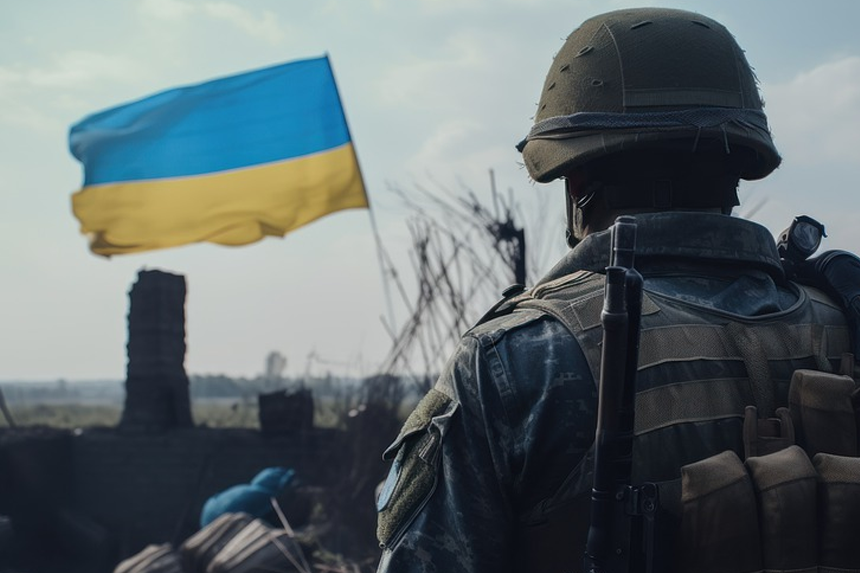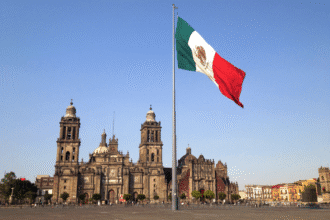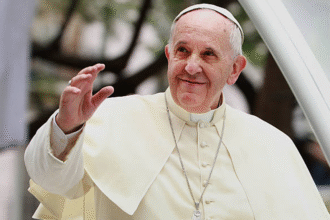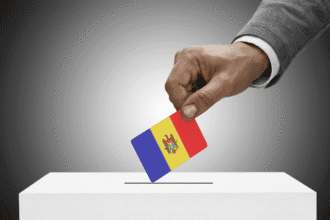The soldiers of Ukraine are worn out from three years of nonstop combat, and the battlefield is a place of fatigue. Everyone is wondering if Ukraine can withstand another year of fighting as the war rages on. Despite their exhaustion, the army is still fighting against Russian advances, but Ukrainian troops are almost encircled close to the village of Kurakhove. The struggle for survival has intensified, and the current conflict in Ukraine raises the possibility of more military conflict. Although peace talks are still far off, many people are optimistic they will eventually end the violence.
- How are the Black Pack defying the odds, and who are they?
- How Might International Peace Talks Affect the Conflict?
- Do the Troops Want to Continue Fighting or Engage in Negotiation?
- Why Does Denys Believe a Ceasefire Is Necessary for Ukraine?
- What Are the Opinions of Ukrainian Civilians Regarding the War and Negotiations?
- What Are Ukrainians Willing to Give Up, and What Could Peace Cost?
How are the Black Pack defying the odds, and who are they?
The Black Pack, a mortar battalion tasked with keeping Ukrainian soldiers from being surrounded close to Kurakhove, is one of the groups engaged in the conflict. With the Russians encroaching on three sides, their mission is dire. Nevertheless, the group maintains its fortitude despite the dire circumstances.
After a week of fighting, the unit rests at a safe house, which is ordinary. “We’re not your average soldiers,” says Surt, their 31-year-old commander. The team comprises a diverse mix of people, including a vegan chef, a mechanic, a web developer, and an artist, united not only by their shared purpose but also by their non-conformist beliefs. Some of them identify as anarchists, but they all volunteered to fight because they wanted to defend Ukraine from Russian aggression.
The reality of the situation has set in, and these soldiers understand the cost of their commitment in the context of the ongoing war in Ukraine. Surt, who enlisted in the army soon after Russia’s full-scale invasion, explains, “At the start, I thought the war would last three years. Now, I’m mentally preparing myself for another ten years of fighting.”
How Might International Peace Talks Affect the Conflict?
The impact of the conflict on Ukraine has prompted concerns about the possibility of international peace talks. Presidents Volodymyr Zelensky of Ukraine and Donald Trump of the United States have raised the prospect of peace negotiations. However, these conversations are tense for a lot of Ukrainians. At this point, the majority of the talks are still theoretical.
Though skeptical of their ability to produce long-term effects, Surt is cautiously receptive to peace talks. Surt says, “He is quite an ambitious person, and I think Trump will try to do it,” alluding to the American president’s intention to bring the war to an end. Surt, however, is concerned that any deal will be at the expense of Ukraine and provide little redress to people who have been harmed by Russian aggression. “Many people will have to accept that their loved ones were slain and that rockets and shells devastated their homes. This will be challenging.
Surt responds when asked if he would rather compromise or keep fighting: “Keep fighting.”
Do the Troops Want to Continue Fighting or Engage in Negotiation?
The majority of his unit shares Surt’s viewpoint. The vegan chef Serhiy agrees with this. Negotiations would only result in a short-term halt to the fight. “The conflict will return in a year or two,” he cautions. Serhiy is determined to fight despite the dire circumstances. As he puts it plainly, “Being killed is just an occupational hazard,”
The group’s artist, Davyd, is more circumspect regarding global politics. “Trump is unpredictably dangerous,” he asserts. “He could be either very good or evil for Ukraine.”
Despite these worries, the crew remains steadfast in its devotion to the battle. After a week on the front lines, they have a week off. However, they keep training even when they’re sleeping. For them, it’s about staying focused and motivated. They practice firing their mortars in the frigid fields, always ready for the next engagement in the war raging in Ukraine.
Why Does Denys Believe a Ceasefire Is Necessary for Ukraine?
Denys is unique among the group. Denys, a volunteer who fled the security of his German home to fight for Ukraine, is highly disturbed by the number of people killed in the conflict. “I asked myself the question: Could I live in a world where Ukraine doesn’t exist?” he thinks. “You will lose if you don’t try,” he says, acknowledging that Ukraine’s chances of winning are dwindling. Instead of lying down and taking it, I’ll at least attempt to win till the end.”
Denys, however, has a more complex perspective. Even though he is still determined to fight, he thinks that given the enormous losses, Ukraine needs to consider a ceasefire. “I just think a lot of the motivated soldiers are either lost or they’re pretty damn exhausted,” he continues. “We can’t go on for many more years.” Denys’ opinions are consistent with the more considerable debate over the necessity of peace talks, particularly in light of the growing toll of the conflict.
What Are the Opinions of Ukrainian Civilians Regarding the War and Negotiations?
Civilian life reflects the fatigue of the frontlines. The ongoing danger of Russian drone and missile assaults has turned into a sobering reality in Dnipro, the third-largest city in Ukraine. Residents must constantly be on guard due to the air-raid sirens that blare day and night. Nevertheless, Ukrainians still want a sense of normalcy despite these risks. Although there are still memories of the war, a performance of the comedic play The Kaidash Family provides a moment’s respite. The national anthem is played after a moment of silence to remember the fallen, highlighting the toll the conflict has had.
The play’s audience member, Ludmyla, embodies the growing sense of combat weary. “Sadly, our numbers are declining. We need to sit down and negotiate because, although we’re receiving some assistance, it’s insufficient,” she says.
Another audience member, Kseniia, observes the significant death toll. “Many of our soldiers have lost their lives. Our territories were the cause for which they fought. However, I’d like the war to cease.
According to recent opinion polls, Ukrainians are becoming more supportive of negotiations. Those who the war has uprooted are more likely to feel this way. An elderly group of women living in a shelter beside the theatre express their desire for tranquillity. The 87-year-old Valentyna describes their experience: “We had nothing when we arrived, but we were given food, clothing, and shoes. While being a guest is nice, being at home is preferable.
Like many others, her house is currently occupied by Russian forces. After losing everything, the women insist that the only viable option is to engage in peace talks. When Mariia, 89, considers the human cost of the war, she says, “I don’t know how either side will be able to look into each other’s eyes after the sheer hell they’ve committed.”
Mariia also thinks there is no longer any chance for military triumph. “It’s already clear no one will win militarily,” she continues. “That is why we need negotiations.”
What Are Ukrainians Willing to Give Up, and What Could Peace Cost?
The people displaced by the conflict might have to make the most significant sacrifices if peace negotiations are held. Many Ukrainians are grudgingly preparing to confront the painful truth that Ukraine might be forced to cede land in exchange for peace. Peace is becoming increasingly desired by people who have lost everything, but the cost can be more significant than anyone could have predicted.
Both military and civilian survivors of the war ultimately have to consider how much they are prepared to give up to achieve peace. While others wonder if the price is too high, the Ukrainian people are determined to battle because the future is undetermined.








